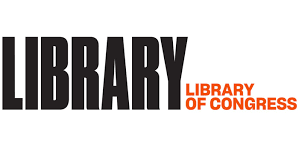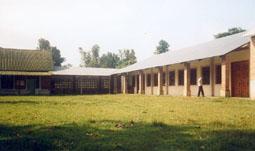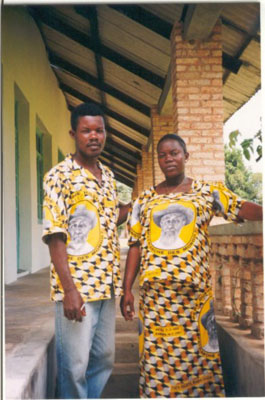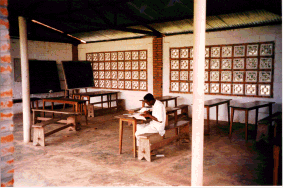
Professor John Bellamy Foster ~ Photo: University of Oregon
Climate change is the greatest existential crisis facing humanity today. Capitalist industrialization has led us to the edge of the precipice, and avoiding the end of civilization as we know it may require the development of a view in direct opposition to the way in which capitalism “values” nature, according to John Bellamy Foster, professor of sociology at the University of Oregon and editor of the socialist magazine Monthly Review.
C. J. Polychroniou: We live in a period of massive environmental disturbance, such that it has led to the claim that we are no longer in the Holocene epoch but instead in the midst of the Anthropocene era. Assuming that this claim, popularized in the West by the atmospheric chemist and Nobel laureate Paul Crutzen, is scientifically correct, to what extent can economic growth itself be blamed for the catastrophic effects of human activities on the environment, including influencing the climate by burning fossil fuels, cutting down rainforests and farming livestock?
John Bellamy Foster: It is worth noting that the Anthropocene concept originated in the early USSR. It first appeared in the English language in the translation of The Great Soviet Encyclopedia in the 1970s. This arose out of discussions of anthropogenic change and the biosphere pioneered in Soviet science, pointing to today’s Earth System perspective and to our current, more developed notion of the Anthropocene.
It now appears to be the consensus in natural science that the Anthropocene epoch in geological history commenced in the early 1950s, marked by a Great Acceleration of anthropogenic impacts on the Earth System. The 2018 special report of the IPCC released last month emphasizes the shift from the Holocene to the Anthropocene as signifying that anthropogenic factors are now the leading sources of change in the Earth System, most notably in the form of climate change. Economic activity at present, as you note, relies heavily on burning fossil fuels, cutting down rainforests, and livestock farming, all of which lead to the emission of greenhouse gases that are accelerating climate change.
Today’s planetary ecological crisis is due first and foremost to the increasing scale of the capitalist world economy. The greater the scale of the economy the more it rivals the fundamental biogeochemical cycles of the planet. All of this is connected to the nature and logic of capitalism, understood as a system directed at the accumulation of capital. Capitalism is a grow-or-die system. If accumulation declines, the result is economic crisis. The answer of the system is to boost accumulation. This, however, intensifies global environmental crises as the already visible impact of the economy on the Earth System increases.
To speak of economic growth as a principal problem, and of the need for a steady-state economy as a solution, immediately raises the specter in people’s minds of the end of human progress. However, we should be careful not to identify economic growth, as that term is used today, with human advancement as a whole. Economic growth was deified in the 1950s, following the introduction of national income accounting during the Second World War. The system of national or Gross Domestic Product (GDP) accounting is rooted in capitalist notions of value added, profit and accumulation. It accurately reflects the logic of capital accumulation but it is far removed from growth in the wider sense in which people usually think of it.
This can be understood by looking at some of the details GDP measurement. The work of subsistence workers in agriculture (or women working in the household) is not included in GDP since their production is outside the commodity market. If an oil tanker hits an iceberg causing an oil spill, GDP increases, due to all the cleanup costs, insurance payments, and lawyer fees. However, there is no deduction in GDP for the effects of the oil spill on the environment. Social and environmental costs, in this sense, are treated as “externalities,” that is to say, they are excluded from national-income accounting. The growth of a forest adds nothing to economic growth. But the cutting down of the same forest (viewed as so many millions of board feet of standing timber) for sale on the market counts as growth. A war that kills millions drives up economic growth, and leads to faster growth afterwards because of the need to replace capital destroyed. The lives lost in the war, however, count for nothing in economic growth terms.
The problem here is not GDP accounting itself. Rather this way of measuring growth accurately reflects how the capitalist system works. It conceives progress only in terms of the cash nexus (whatever passes through the market), as opposed to what benefits people or the planet. In the advanced capitalist economies by far the greater part of production consists of waste in terms of negative use values, that is, products that are unproductive, superfluous, and destructive, while the most basic human needs are often not met. This is “rational” for today’s monopoly-finance capital, but it is irrational for society as a whole. All of this means we have to move away from economic growth as it is understood in the current system and toward a society of sustainable human development.
Some mainstream environmentalists believe that the problem is that nature is not fully internalized within the system of market value, and that all of nature should therefore be seen as “natural capital.” However, we must remember that value isn’t everything: real wealth, life itself, cannot be reduced to the logic of market valuation without undermining the very basis of its existence.
You have been arguing for doing away with the concept of “value” when it comes to nature. Does this mean that capitalism is unavoidably bad for the environment?
As far as its inner logic is concerned, the answer is yes. For capitalism, accumulation of capital is everything, the Earth and its inhabitants nothing. If value is created by the exploitation of labor, this nonetheless requires constant expropriation of a natural environment which is considered a free gift to capital. In its narrow pursuit of profits, the capitalist system points inexorably to creative destruction on a planetary scale. Karl Marx theorized this as the problem of the metabolic rift, in which capitalism robbed the Earth itself as a basis of the accumulation of capital.
At the current carbon-emission rate, the world will break the global carbon budget (i.e., will reach the trillionth metric ton in cumulative carbon emissions) in seventeen years, threatening out-of-control climate change. Other planetary boundaries are also being crossed: resulting in the sixth extinction, ocean acidification, the disruption of the nitrogen and phosphorus cycles, loss of forests, global freshwater shortages, etc. These urgent problems have to be addressed in the context of the present reality. This requires creation of a massive, irrepressible, global movement toward socialism that goes against the logic of the system: igniting a long ecological revolution.
I suppose then that you are not optimistic about technological solutions curbing climate change and dealing with other environmental challenges like air pollution, cleaning up the oceans and so on.
New technology is indispensable in addressing global problems. But we have to have a critical social theory of technology, and not see it as a deus ex machina. Today’s planetary emergency is partly the result of technologies aimed almost exclusively at promoting profits. Destructive technologies are employed, undermining living beings and the planet as a safe home for humanity. We need a massive shift to solar and wind and other alternatives, but the fossil-fuel economy and the goal of capital accumulation stand in the way. Rational development and application of technology in accordance with scientific and human criteria necessitates a major transformation of our social relations.
The big mistake is to fall for a crude technologism, viewing technology as a magic solution to all problems. This ideology is heavily promoted by the system because it inculcates the idea that the current acquisitive order can continue unchanged in its social relations. We are told that some futuristic technology will enter in to save the day. The fact is that a simple technological fix that would make it possible for capitalist business as usual to continue indefinitely defies both the laws of physics and the results of critical social science, which are set aside in such technological fantasies …
The consumerist strategy — that is, the idea that we can in effect do good things for the environment and bring about overall social and economic change — is probably hopelessly romantic, at least for those of us who subscribe to the materialist view of history. The question, then, is this: What is needed to ensure that we can go on improving the standard of living without causing harm to the environment?
As a teacher, I have found that one of the hardest things to convey to my students is that “consumer sovereignty” is a myth. Most individuals in our society, absorbing the received ideology, have come to believe that as consumers they dictate what happens in the economy and the society. Hence, if they were to choose as individuals and in the aggregate to change their consumption habits and only buy Green products, the market would turn Green. All the problems of the environment, they are convinced, are due to consumers themselves.
There are a lot of reasons to reject such views. First, power in the capitalist economy rests on ownership and control of the means of production, not with the consumer. Second, if all the household waste in the United States going into municipal landfills were eliminated this would only take care of about a small portion, maybe as little as 3 percent, of the total solid waste generated in the economy) , the rest occurs in the realm of production under the aegis of corporations. Third, John Kenneth Galbraith’s The Affluent Society pointed to what he called “the dependence effect”: What is consumed depends largely on what is produced. Fourth, over a trillion dollars are spent per year in the US economy on marketing with the object of getting people to buy things they neither need nor want. Fifth, the sales effort has penetrated into the production process to such an extent that there is little distinction nowadays between a product and its brand image. Sixth, the enormous surveillance system in the private sector organized around the Internet is mainly a means of manipulating consumers. All of this suggests that gaining political control over production is essential if the tendency toward environmental devastation (together with the exploitation of labor) is to be surmounted.
Given the disastrous legacy of “actually existing socialism” with regards to the environment, let alone political repression and other human rights violations, how do you envision socialism in the 21st century?
Soviet-type societies were destructive of the environment on a level comparable to the West, and turned into repressive class societies sui generis (of their own type). Nonetheless, a vast environmental movement developed in the USSR in the 1970s and ‘80s, led by scientists, along with the emergence of the largest conservation organization in the world. There were proposals by some Soviet economists, to revise the USSR’s planning system in terms of indicators of “gross social wealth,” considering ecological factors. All of this went away with the dissolution of the USSR. But it is important to understand that there was a powerful ecosocialist critique developing among leading critical Soviet intellectuals. What we see today as China’s notion of “ecological civilization” was first developed by ecosocialist thinkers in the Soviet Union. Meanwhile, ecosocialism arose separately in the West in the 1980s and ‘90s, and now has spread across the world.
Ecosocialism thus emerged as a radical movement both in capitalist and “actually existing socialist” societies. Unlike mainstream Green theory, it recognizes that to overcome the greatest historical challenge humanity has ever faced it will be necessary to carry out a revolutionary reconstitution of society at large. More and more people, especially in the global South, are concluding, as a result of their own material experiences, that the degradation of the environment and the exploitation of human beings have a common basis in an alienated system that needs to be transcended. This takes us back to the classical historical-materialist tradition associated with Marx and Engels, which emerged at a time when struggles over the workplace, the urban environment, and the land were seen as inextricably connected. Understood in these terms, ecosocialism, is based on the dual necessity of substantive equality and ecological sustainability. System Change Not Climate Change!
Copyright: truthout.org
C.J. Polychroniou is a political economist/political scientist who has taught and worked in universities and research centers in Europe and the United States. His main research interests are in European economic integration, globalization, the political economy of the United States and the deconstruction of neoliberalism’s politico-economic project. He is a regular contributor to Truthout as well as a member of Truthout’s Public Intellectual Project. He has published several books and his articles have appeared in a variety of journals, magazines, newspapers and popular news websites. Many of his publications have been translated into several foreign languages, including Croatian, French, Greek, Italian, Portuguese, Spanish and Turkish. He is the author of Optimism Over Despair: Noam Chomsky On Capitalism, Empire, and Social Change, an anthology of interviews with Chomsky originally published at Truthout and collected by Haymarket Books.
 The National Screening Room showcases the riches of the Library’s vast moving image collection, designed to make otherwise unavailable movies, both copyrighted and in the public domain, freely accessible to the viewers worldwide.
The National Screening Room showcases the riches of the Library’s vast moving image collection, designed to make otherwise unavailable movies, both copyrighted and in the public domain, freely accessible to the viewers worldwide.




